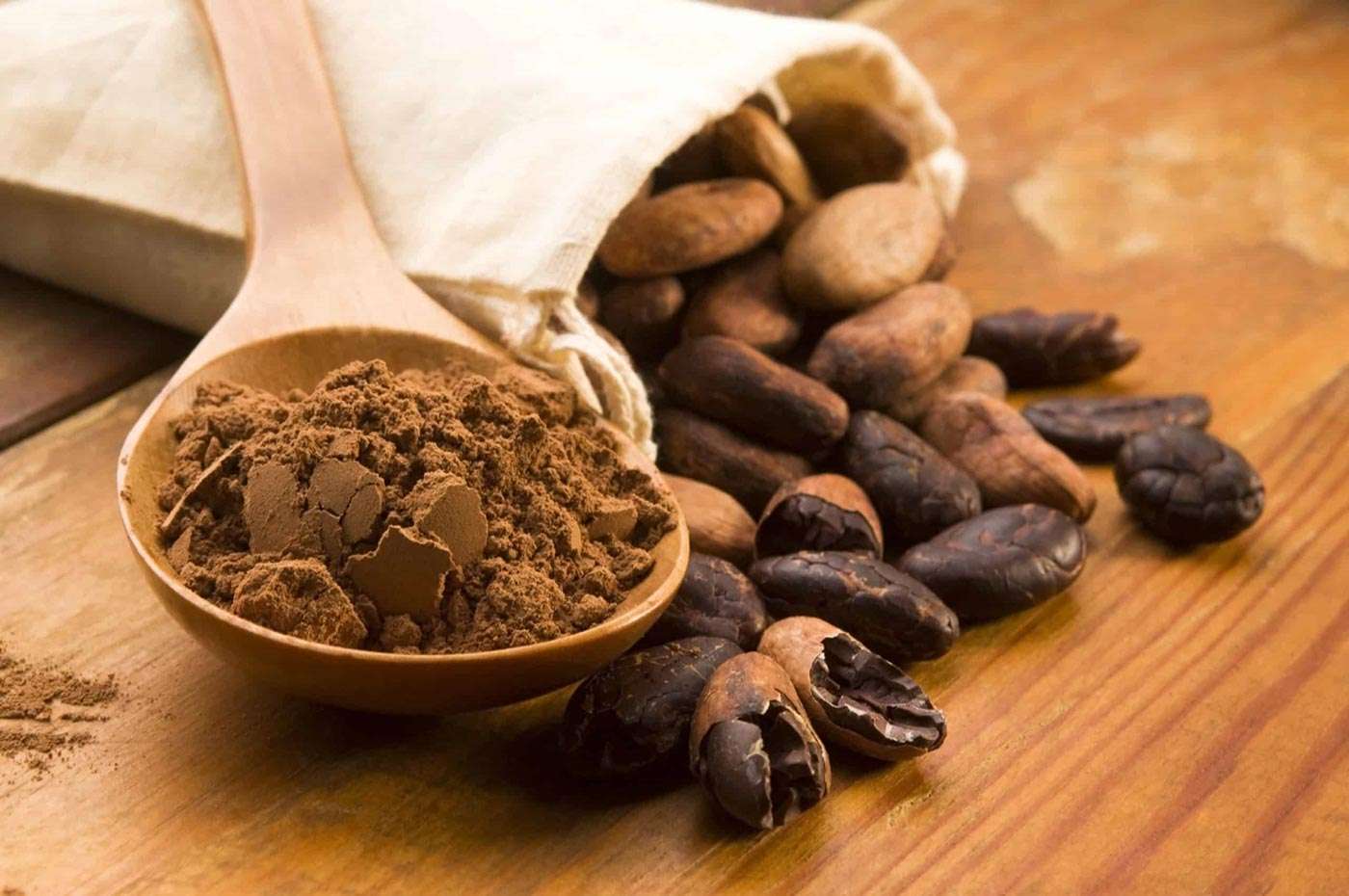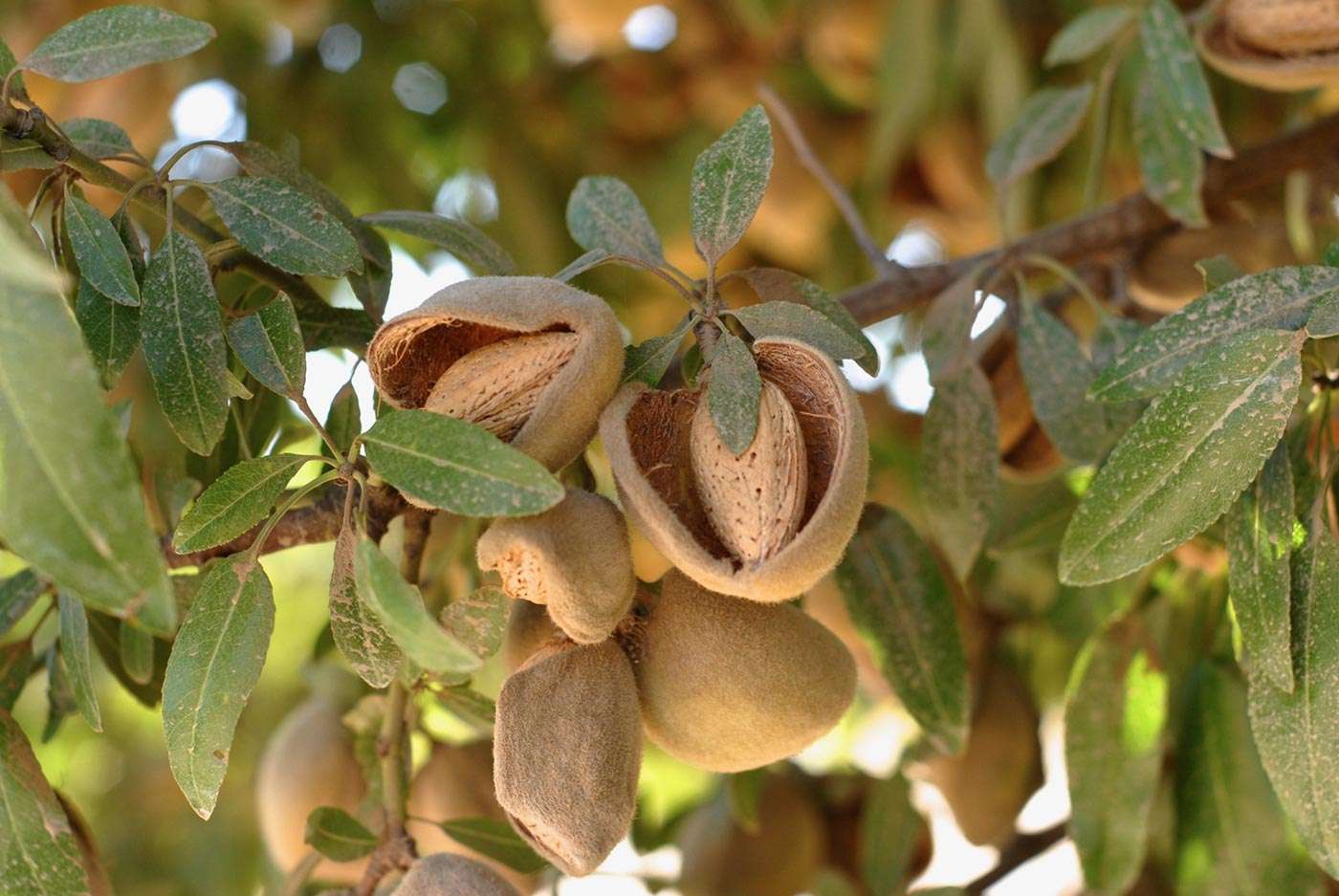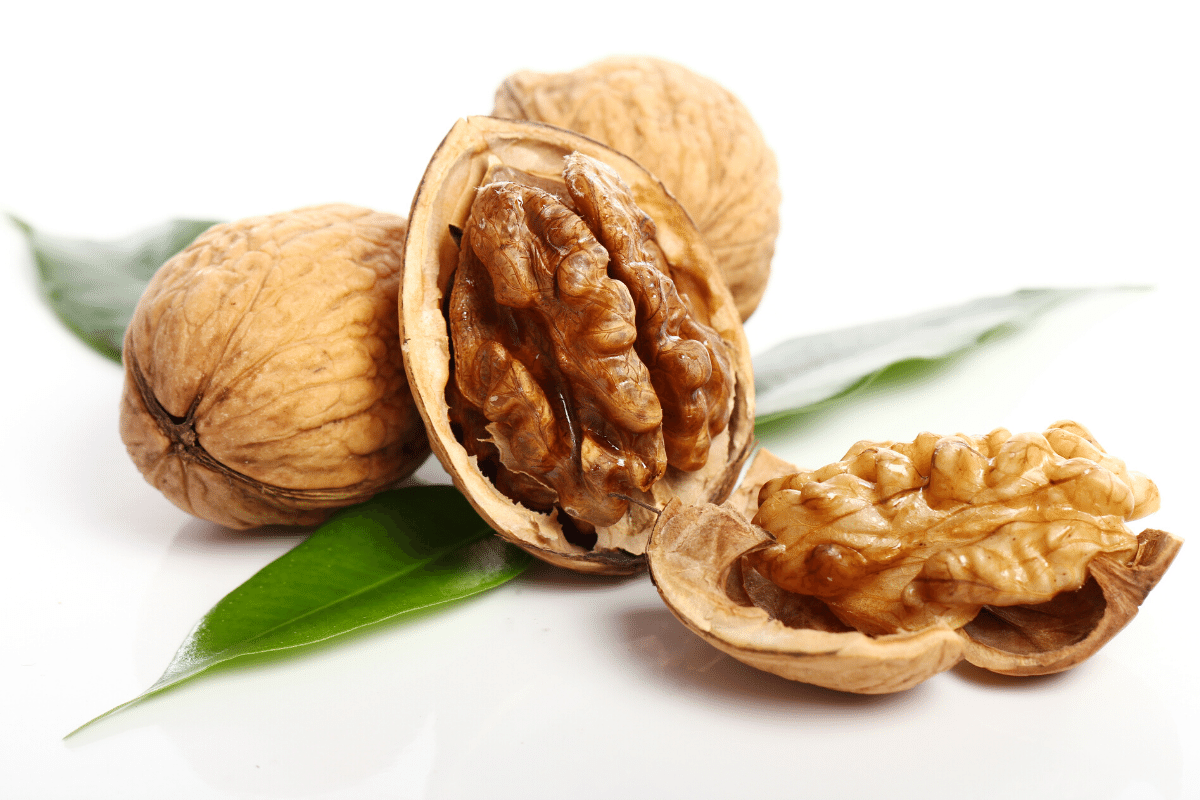Pistachio and Health Benefits
Pistachio and Health Benefits
Pistachios are a great source of healthy fats, fiber, protein, antioxidants, and various nutrients, including vitamin B6 and thiamine. It offer numerous health benefits include eye health, gut health, and high amounts of protein that are beneficial for vegetarians.
Pistachios are the seeds of the pistachio tree. They’re usually green and slightly sweet. They’re called nuts, but botanically pistachios are seeds. People have been eating them for thousands of years.
The kernels can have different colors, ranging from yellow to shades of green. They’re usually about an inch long and half an inch in diameter. But if you want to taste one, you’ll have to crack open its hard shell first.
The pistachio tree originated in western Asia, and archaeologists believe pistachios became a food as early as 7,000 B.C. They came to the United States in the mid-19th century and commercial production began in the 1970s.
California, Arizona, and New Mexico make up all of America’s commercial pistachio production. You can buy pistachios shelled or unshelled, roasted, or salted. They’re available in most grocery stores, and you can buy them in bulk from pistachio growers.
PISTACHIOS ARE A COMMONLY CONSUMED NUT THAT IS HIGH IN FIBER
A one-ounce (28-gram) serving of pistachios contains roughly:
- Calories: 156
- Fat: 12.5 grams
- Protein: 6 grams
- Carbs: 8 grams
- Fiber: 3 grams
- Vitamin E: 3% of the RDI
- Magnesium: 8% of the RDI
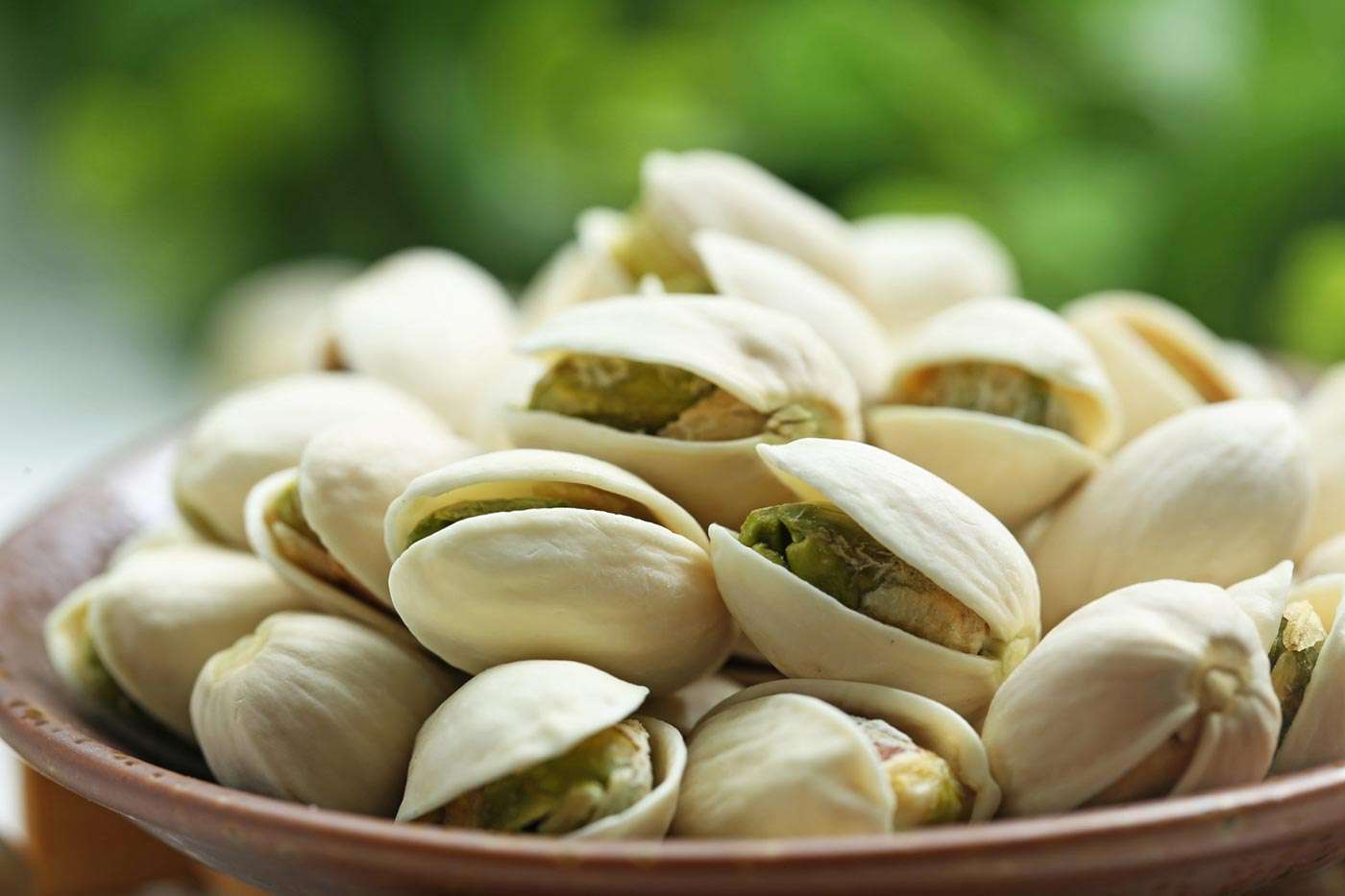
1. Low in calories
Pistachios are one of the lowest calorie nuts, which means people can enjoy the health benefits of nuts while more easily staying within their daily calorie limits. One ounce of macadamia nuts, for example, contains 204 caloriesTrusted Source, while 1 ounce of pecans provides 196 caloriesTrusted Source. The same 1 ounce of pistachios contains just 159 calories.
2. Packed with antioxidants
Antioxidants are substances that play a critical role in health. They reduce the risk of cancer and other diseases by preventing damage to the body’s cells. Nuts and seeds contain several antioxidant compounds, but pistachios may have higher levels of some antioxidants than other nuts.
ResearchTrusted Source reports that pistachios have among the highest levels of antioxidants including:
- γ-tocopherol
- phytosterols
- xanthophyll carotenoids
- These substances have high antioxidant and anti-inflammatory effects.
In one small studyTrusted Source involving 28 participants with high cholesterol who ate 1 or 2 daily servings of pistachios over 4 weeks, researchers showed that they experienced an increase in their levels of the antioxidants lutein, α-carotene, and β-carotene compared to those who ate none.
3. Good for eye health
The antioxidants lutein and zeaxanthin are essential for eye health. Pistachios are a rich both of these substances.
According to the American Optometric Association, lutein and zeaxanthin reduce the chances of developing eye conditions, including age-related macular degeneration (AMD) and cataracts. AMD and cataracts are the leading causes of blindness in the United States.
4. Beneficial for gut health
All nuts are rich in fiber, which encourages a healthy digestive system by moving food through the gut and preventing constipation.
A type of fiber called prebiotics may also feed the good bacteria in the gut. Feeding the good bacteria helps them multiply and “crowd out” harmful bacteria. According to a small, 2012 study, eating pistachios may increase the levels of beneficial bacteria in the gut. In the study, volunteers ate a standard diet with either 0 ounces, 1.5 ounces, or 3 ounces of pistachios or almonds. Researchers collected stool samples and found that people who ate up to 3 ounces of pistachios daily showed an increase in potentially helpful gut bacteria, much more so than those who ate almonds.
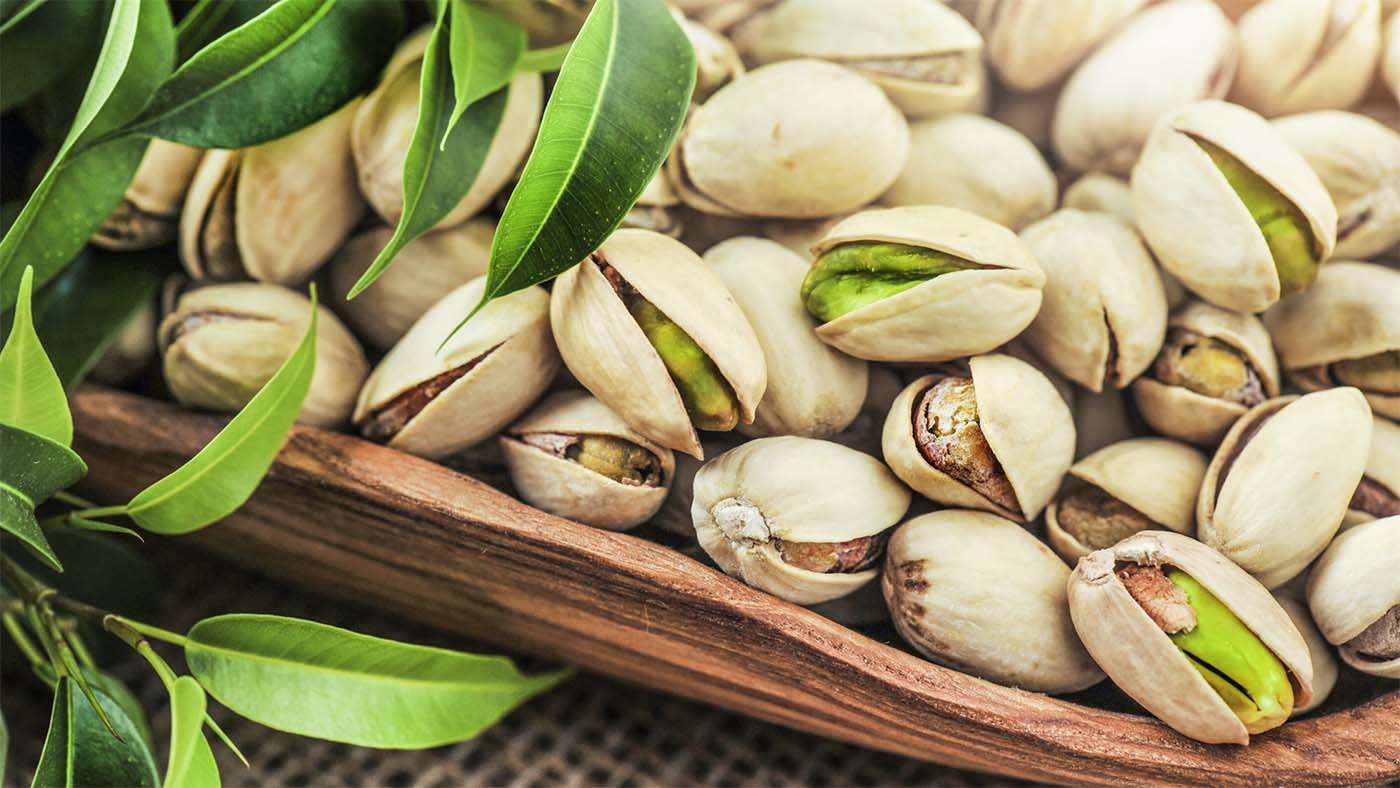
5. High in protein for vegans and vegetarians
Pistachios contribute to a person’s daily protein needs, at almost 6 g of protein per 1 ounce serving.
Protein accounts for approximately 21 percentTrusted Source of the total weight of the nut, making it a good source for vegetarians and vegans, among others. Pistachios also boast a higher ratioTrusted Source of essential amino acids, the building blocks of protein, when compared with other nuts, including almonds, hazelnuts, pecans, and walnuts.
6. Helpful for weight loss
Regularly eating nuts helps to reduce the riskTrusted Source of weight gain. Pistachios may be especially beneficial for those who wish to lose weight or maintain their weight thanks to their caloric values and fiber and protein content.
7. Important for heart health
In particular, pistachios may protect the heart by reducing cholesterol levels and high blood pressure. Women who regularly eat nuts may be mildly protected from cardiovascular disease.
In a small sample of 28 participants in a study specifically on pistachios for heart health, it was reported that two servings per day reduced the risk of cardiovascular disease. Another study found that pistachios may help lower harmful cholesterol levels.
A 2015 analysisTrusted Source of 21 studies reported that eating nuts could lead to a significant reduction in blood pressure in people without type 2 diabetes. Pistachios had the strongest effect of all. Nuts were tested in reducing both systolic and diastolic blood pressure.
In addition, Pistachios have a low glycemic index which is good for blood sugar balance. One study found that eating pistachios as a snack benefited blood sugar, blood pressure, obesity, and markers of inflammation.
And one more thing, Pistachios may reduce the risk of certain cancers, such as colon cancer, due to their high fiber content.
Compiled and penned by Crocus Media
Products
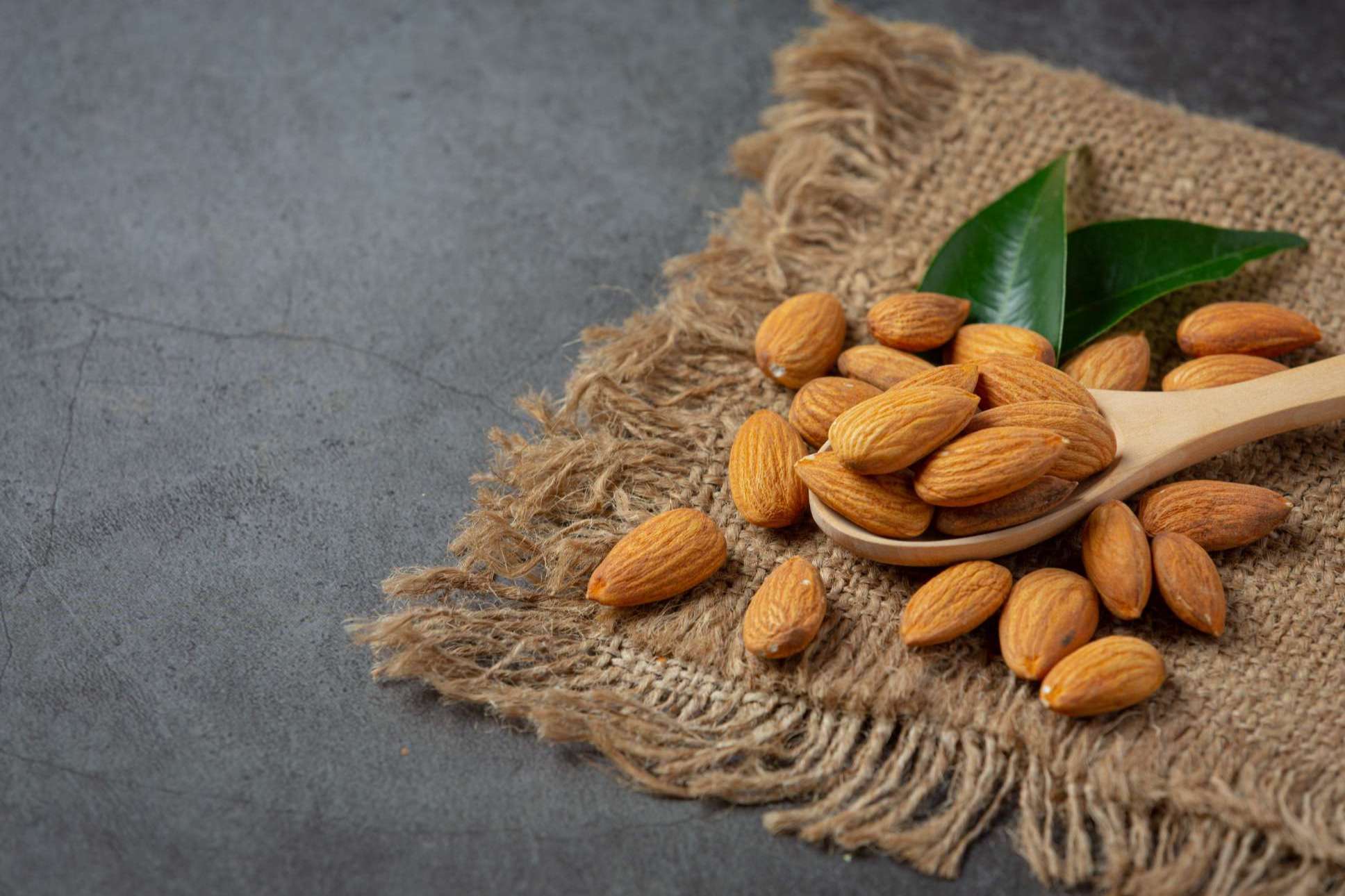
Almond
Almonds contain lots of fiber, protein, magnesium, healthy fats and vitamin E. Eating almonds helps to lower blood sugar and cholesterol levels, reduce hunger and promote weight loss.
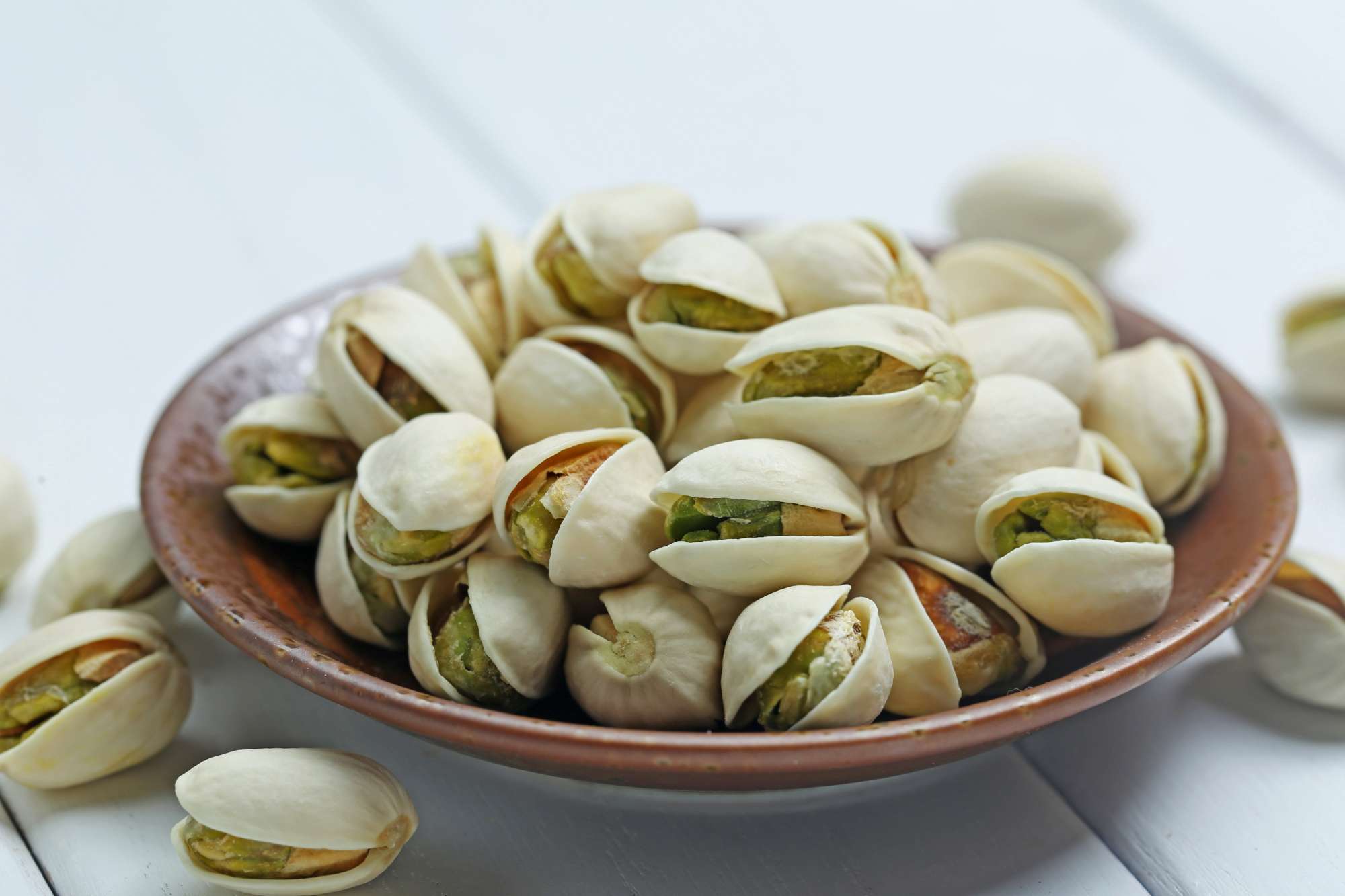
.jpg)
